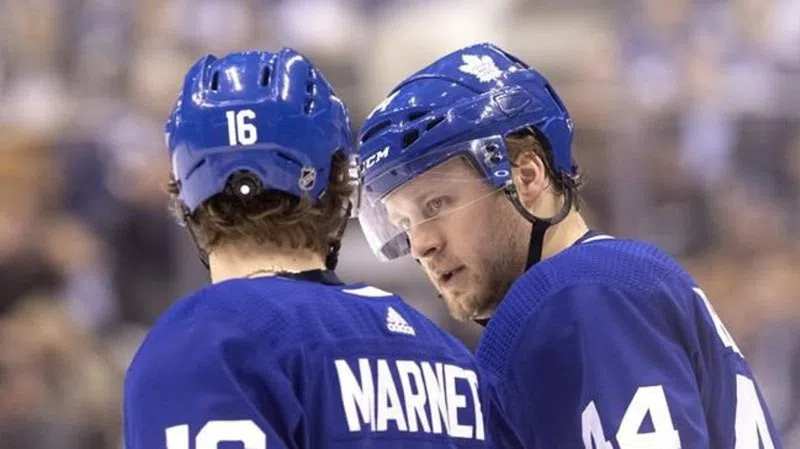
NHL players, teams trying to stay connected with fans during COVID-19 pandemic
The video starts with Morgan Rielly standing at a sink before the Toronto Maple Leafs defenceman proceeds to demonstrate the correct way to wash your hands.
Another clip shows teammate Zach Hyman inviting fans to play games against him online.
Vancouver Canucks centre Elias Pettersson went for levity with a carefully edited golf video, while Montreal Canadiens counterpart Max Domi shared some impressive balance as he juggled a ping pong ball with his hockey stick.
In an unprecedented era of social distancing, self-isolation and quarantine during the global COVID-19 pandemic that has seen arenas go dark, NHL players and their teams are doing their best to stay connected with fans on social media.


